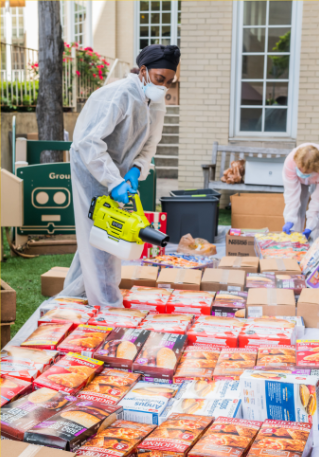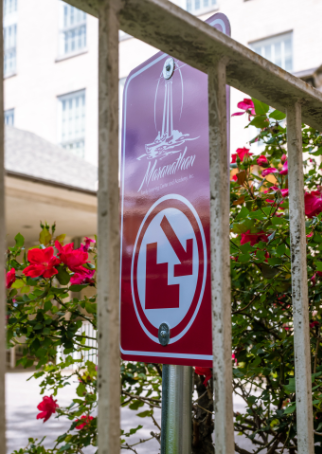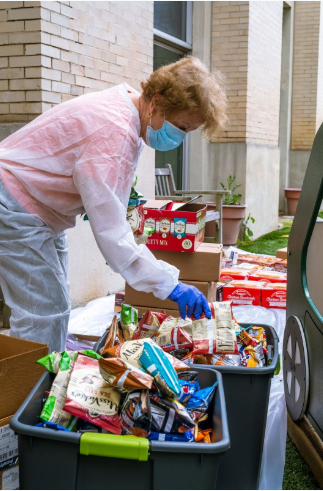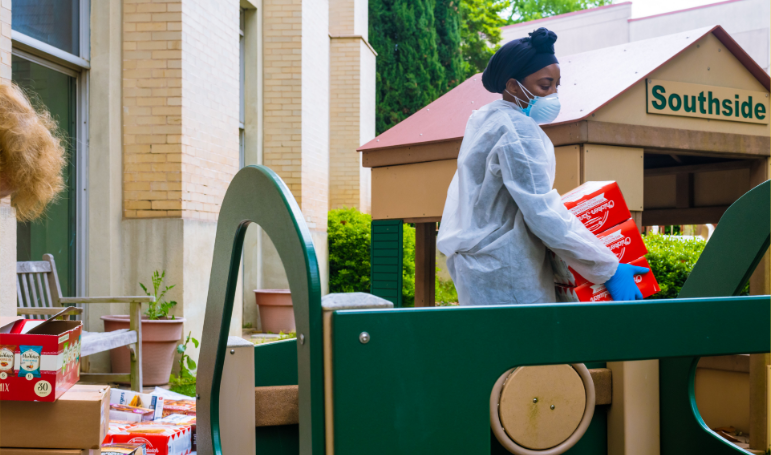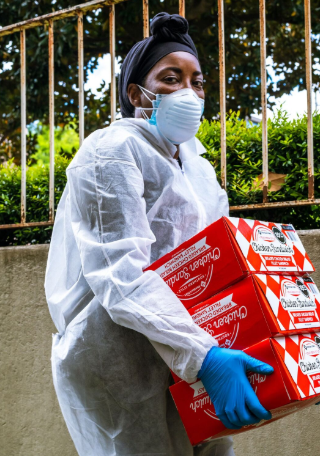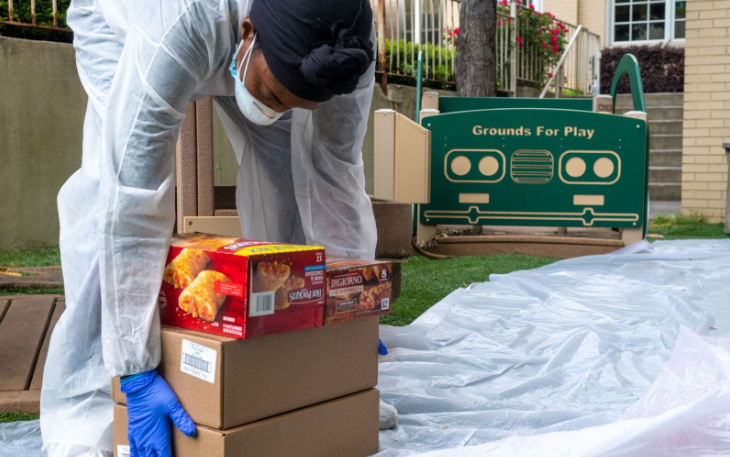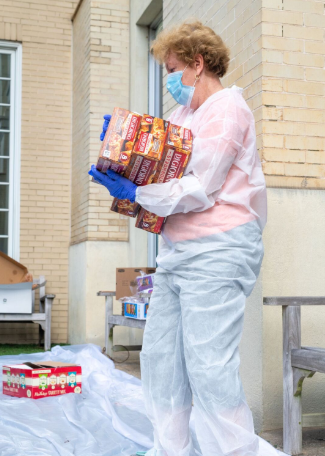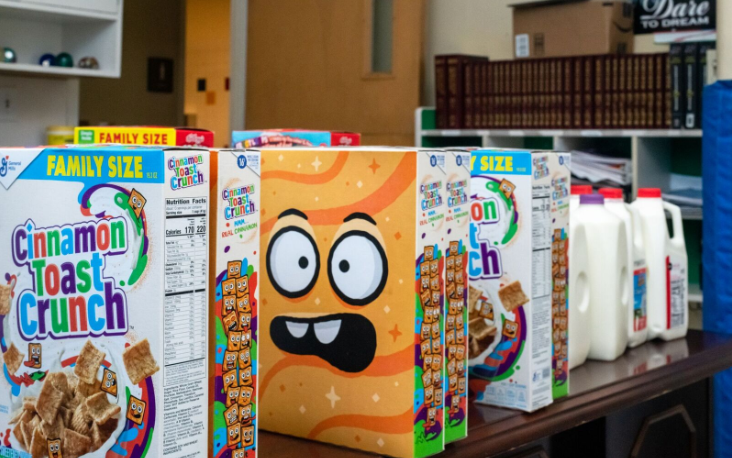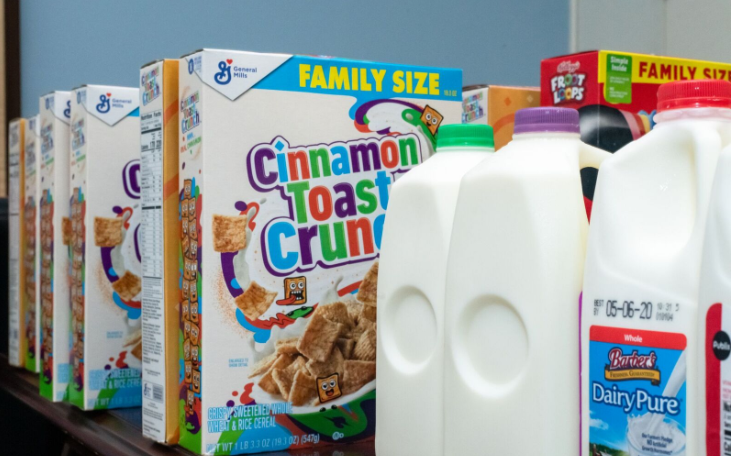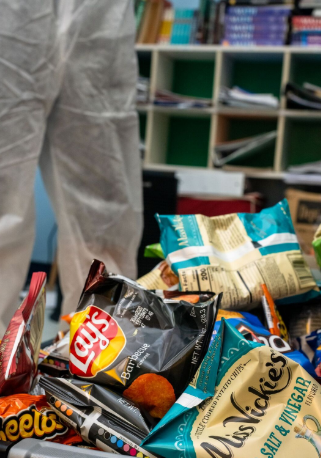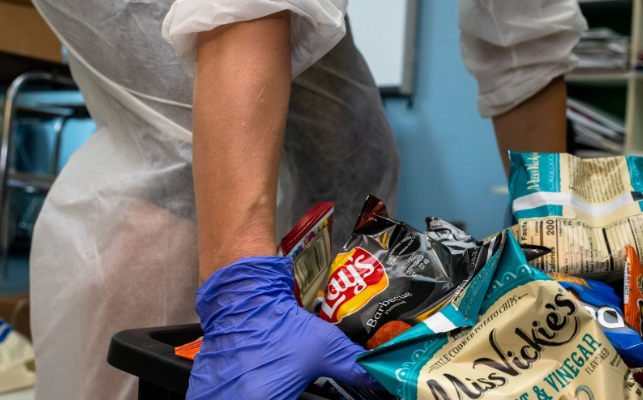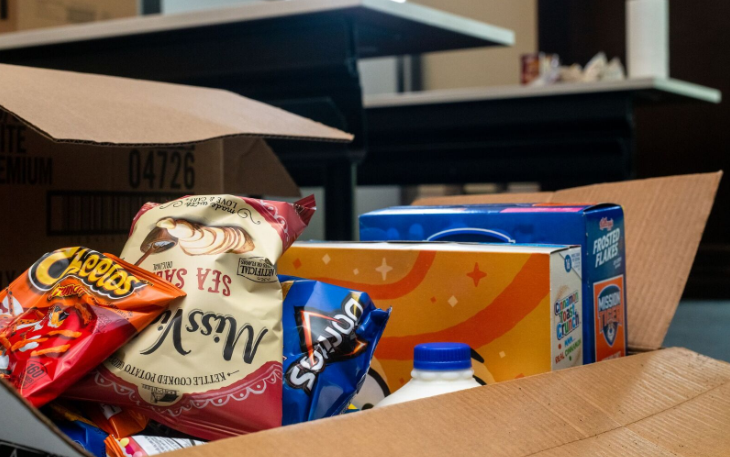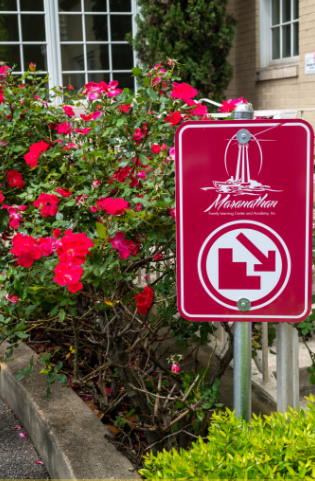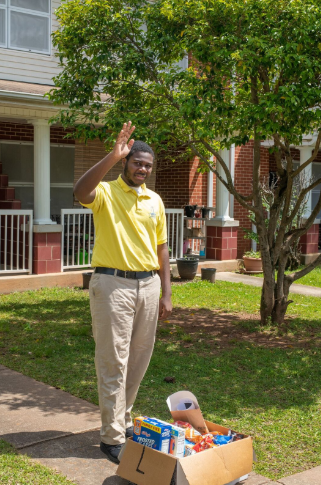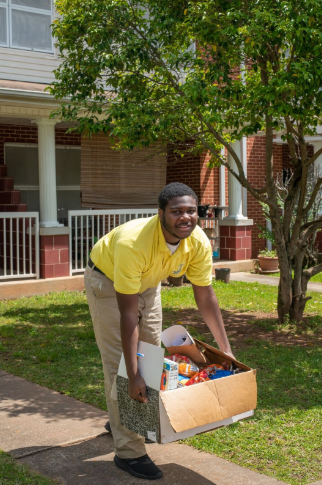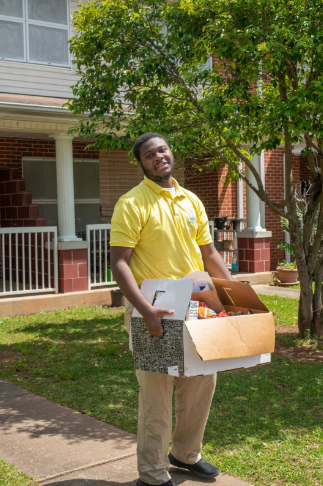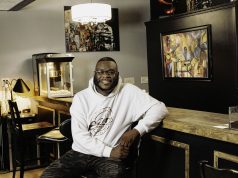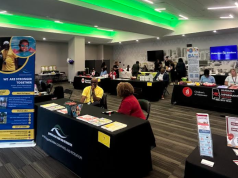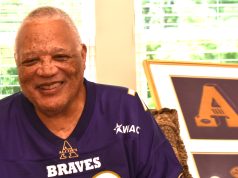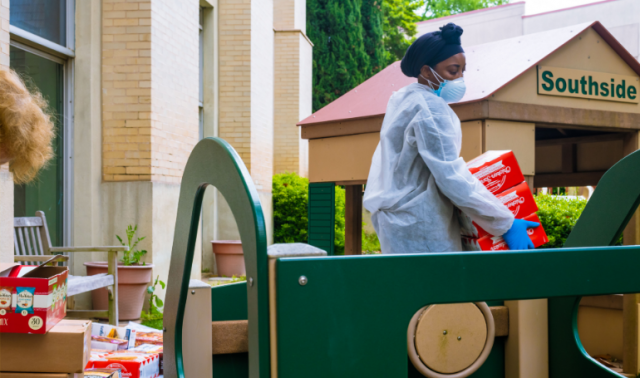
By Je’Don Holloway Talley
For the Birmingham Times
While some may pine for the return to family gatherings, shopping malls, and grooming salons, Donna Dukes, founder and executive director of Maranathan Family Learning Center and Academy, a private school for critically at-risk youth in Birmingham’s Southside, longs for the safe return of her students and staff.
The academy, which has 18 students in grades 6 through 12, has been affected by COVID-19 in several ways.
“One of our parents tested positive [in the last week of March], and it’s absolutely terrifying,” Dukes said. “As a result, her daughter, [the student], had to leave and live with a set of relatives.”
Dukes said that situation was not good for the health of the student, who became ill as a result of the stress and now needs surgery.
“Because she needs a [procedure] that is not considered critical, she is not able to even be evaluated for the surgery until June,” Dukes said.
Also, the school’s counselor has had seven family members test positive for COVID-19, including one who died, one who recovered, and another who had to be airlifted to University of Alabama at Birmingham (UAB) Hospital; the remaining four are fighting the virus.
If that is not enough, three Maranathan students have run away from home since [the academy] stopped onsite classes on March 9.
“We’ve had to reach out, find them, and talk them into going back home,” said Dukes, 49, who opened the academy in September 1991 primarily for young people who had been expelled from school and were part of the juvenile justice system.
Maranathan Academy is a nonprofit school specializing in critically at – risk youth. Its primary goal is to break the cycle of government dependency that has plagued the critically at – risk populace for generations. Although originally founded solely for educating expelled students and youth in the juvenile court system, the Maranathan student body now includes bullying victims and other youth who have experienced traumatic life events (sexual assault, parental neglect/abandonment).
With 18 students enrolled and a waiting list of 48, Dukes said, “We receive no government assistance and rely on scholarships and fundraisers. One hundred percent of our students are at or below the poverty line, and we are working diligently to make sure our fundraiser events are successful so that we meet our budget for the upcoming academic year, so we can continue to be a light in the darkness for these amazing, precious students who have all the potential in the world if only given a chance.”
Food Distribution
COVID-19 has affected students mentally and emotionally, Dukes said: “The biggest thing is they have not been able to interact with each other. Having to stay [inside] is not best for their mental or physical health.”
With the school closed, Dukes and the staff at Maranathan do their best to alleviate one particular source of worry for students—access to healthy meals. Every 30 days, the academy provides a food distribution program that Dukes describes as similar to “a military operation.”
“Originally, we were going to try to do it each week, but as more information from epidemiologists came forward, we wanted to attempt to ensure the safety of our students, faculty, and staff, so we moved to a once-a-month platform … that entails us providing lunch and breakfast provisions that will last for one month,” she explained. “Each child gets two boxes packed with breakfast, lunch, and snack provisions. … We get the food from several grocery stores and [bulk items from a local warehouse club]. We divide the boxes among faculty and staff and drive them to each student’s house.
“We begin packing the boxes at 10:30 a.m., pull our cars into the [academy’s] driveway at 11:30 a.m., and load our cars; there are five vehicles. Our students are all over, so it takes a few hours to make all the deliveries. We drive to various parts of the city, from Pleasant Grove to Center Point to Collegeville.”
Dukes analyzed which students who could safely walk to schools, recreation centers, or churches that were giving away meals in their neighborhoods and “discovered that only one of our 18 students would have been able to safely walk to one of those places.”
Monthly boxes contain frozen foods, such as Black Angus cheeseburgers, chicken sandwiches, and other items, in addition to snack bars, cookies, fruits, sandwiches, two boxes of cereal, and a half gallon of milk.
“Students are asked to keep food diaries and send in selfies of themselves consuming their food to make sure they are making sound nutritional decisions. … We incorporate that into a class called Lifestyle Management,” said Dukes, adding that the class is taught by Rosalyn Mitchell, an instructor and program supervisor at Maranathan.
There may be some concerns about where the food goes when many families are now facing shortages, Dukes added.
“The purpose of the food diaries is [to provide accountability and help make sure that it’s our students consuming the food],” she said. “Dr. Rosalyn Spivey, our education liaison, is in charge of locating food banks and resources for families in need, and she helps to administer resources.”
There have been occasions when Dukes has personally purchased food for parents who have reached out because it is necessary to help combat hunger in the entire home, she said: “You can’t expect [a student] to sit down and eat in front of their family, if their family doesn’t have anything to eat.”
Academics
As for academics, Maranathan Academy’s students are on course.
“We sent them home on our last day of onsite classes, [March 9], with laptops, textbooks, workbooks, and lesson packets,” Dukes said. “We are really embracing technology, having students use scan features to take pictures of work and send it in to us. … This has allowed us to not have to delay any graduations or promotions, provided [each student] continues on the right path of completing assignments by the due dates and behaving in the proper way.”
Despite all the challenges posed by the ongoing COVID-19 pandemic, Dukes, an East Lake native, said she and the Maranathan faculty and staff are optimistic.
“We are coping by way of faith, … thanking God that things are not worse than they already are, and believing God for deliverance,” she said. “And in times when we might feel really overwhelmed, we remind ourselves to look forward to better times.”
This story was updated at 11:33 a.m. on 5/2/2020 to correct and clarify passages and quotes and to add background on the mission of Maranathan Academy.




